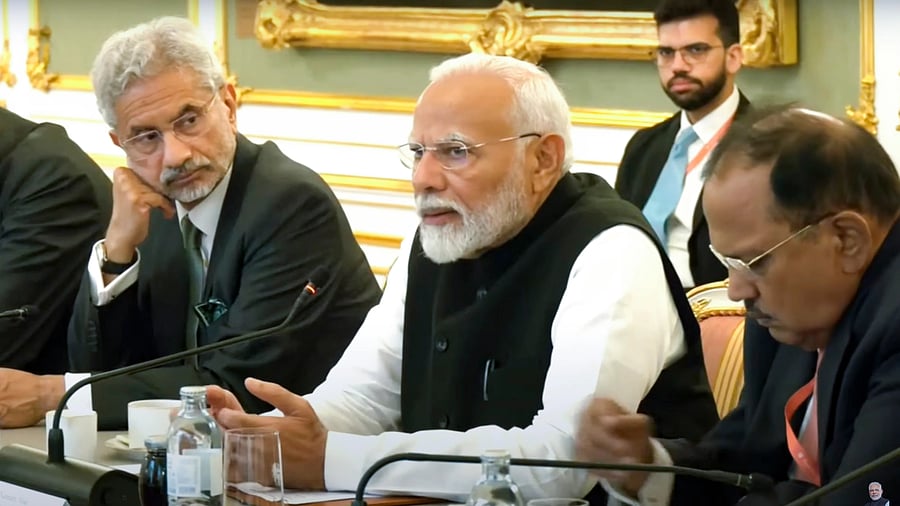
Prime Minister Narendra Modi and External Affairs Minister S. Jaishankar during a meeting.
Credit: PTI File Photo
A nation’s foreign policy defines, at once, the nation and its relations with the world. It is a blueprint for bilateral and multilateral engagement, which ensures the nation’s interests and principles are best served. This is imperative in a diverse and shifting world. Soon after Independence, India framed its foreign policy based on the principles of non-alignment, which was the right path to take in a world divided into two Cold War camps. It also earned the country friends and respect across continents, and importantly, made its people proud of its stature in the world. But now, India’s foreign policy is facing its strongest challenge. The policy no longer helps India protect its interests, the ideas that guide it are contentious, and it has not earned the country many friends.
The issues were, ironically, illustrated in the wake of Operation Sindoor, which India undertook to punish Pakistan in response to the Pahalgam killings. That a third party – US President Donald Trump – announced the ceasefire between the two countries and even took credit for the truce did not raise India’s stature. India did not have much international support during the conflict or after, on the global stage. In another serious setback, it became a special target of President Trump’s tariff war. Some of the principles that always informed the country’s foreign policy, such as commitment to justice and empathy for the oppressed, are no longer its major guiding forces. It has strayed from its principled position on Palestine and has refused to condemn Israel’s genocide in Gaza in clear terms. That would amount to complicity in the worst humanitarian crime in the world now. India’s relations with most of its neighbours range from hostile to poor to strained; its newly forged cordiality with China is a result of circumstances and is unpredictable.
The contrast with the past is clear. India once enjoyed goodwill and friendship with much of the world and was looked upon as a leader, even when it was a poor and underdeveloped country. It has the world’s third-largest economy and is now a significant military power. These achievements have not translated into the elevated stature of a global leader. Every Prime Minister who held the office for a significant time, from Jawaharlal Nehru to Atal Behari Vajpayee to Manmohan Singh, contributed to India’s global standing. When a country fails to mobilise global support in times of adversity, when it is unable to protect its interests even with its economic and military might, it points to a faltering foreign policy.
